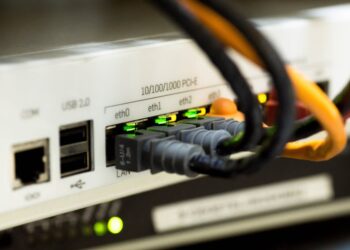Manhattan District Attorney Alvin Bragg is stepping up to ask a New York court not to delay former President Trump’s trial this Thursday.
Bragg’s action comes right after some new evidence popped up in the case against Trump involving supposed secret payments. Judge Juan Merchan, looking at the new findings, decided to push the trial date back by 30 days to April 15, to give everyone a chance to go over these documents.
However, Trump’s lawyers think that’s not nearly enough time. They’re pointing out that these new documents throw a wrench into the works, saying they break the rules about sharing information and are calling for a much longer delay of 90 days.
But Bragg’s latest move on Thursday is to challenge this push for more time. He suggests that Trump’s team is just trying to drag things out as long as they can.
The Legal Saga Unfolds
At the heart of this legal odyssey lies the Manhattan District Attorney’s indictment of Trump on 34 felony counts, related to payments made to Stormy Daniels to silence allegations of an extramarital affair during the 2016 presidential campaign. These charges are not merely legalistic but are imbued with profound political and societal connotations, reflecting the charged atmosphere surrounding Trump’s persona and presidency.
The recent disclosure of over 170,000 documents by the Department of Justice, some stemming from the investigation led by Special Counsel Robert Mueller into Michael Cohen—Trump’s lawyer and confidante—has thrown a spotlight on the intricate dance of legal strategy and public relations. Cohen’s guilty plea in 2018 to charges including those related to the hush money payments places him at the epicenter of this narrative, potentially as a critical witness for the prosecution.
Strategies and Counterstrategies
Trump’s defense has leveraged the voluminous late disclosure of documents to argue for a trial delay, framing this as a violation of discovery norms and an impediment to fair preparation. This move, however, has been met with skepticism by Manhattan District Attorney Alvin Bragg, who contends that such tactics are designed to obfuscate and delay, rather than address the substance of the charges. Bragg asserts that only a minuscule fraction of the newly disclosed documents are pertinent to Trump’s defense, challenging the notion that an extensive delay is warranted.
This battle over discovery and the trial schedule underscores the strategic maneuvering inherent in high-stakes legal battles, where each side seeks to leverage procedural nuances to its advantage. Bragg’s insistence on a limited relevance of the new evidence to the core allegations against Trump emphasizes a desire to expedite the trial, reflecting broader themes of legal accountability and the pursuit of justice.
The Intersection of Law and Politics
The unfolding legal drama cannot be disentangled from its political context, with Trump’s indictment and the ensuing legal maneuvers sparking widespread debate and polarization. Trump’s portrayal of the charges as politically motivated and an extension of a broader campaign to undermine his political legacy taps into deep-seated divisions within American society, raising questions about the impartiality of the justice system and the influence of political considerations on prosecutorial decisions.
Bragg’s opposition to further trial delays and his efforts to counter Trump’s defense strategies highlight the challenges faced by the legal system in maintaining its integrity in the face of politicized cases. This scenario underscores the delicate balance between ensuring a fair and impartial legal process and addressing the broader societal implications of politically charged trials.
The Broader Societal Implications
As the trial approaches, the legal skirmishes between Trump’s defense and the Manhattan DA’s office resonate beyond the courtroom, reflecting broader concerns about justice, accountability, and the rule of law in a politically divided America. The case serves as a litmus test for the ability of the American legal system to navigate the complexities of high-profile, politically sensitive cases, with the outcome likely to have lasting implications for public trust in legal institutions.
Furthermore, the intense media coverage and public interest in the trial highlight the role of the legal system as a focal point for national debates on ethics, power, and accountability. The prosecution of a former president on felony charges is a momentous event in American history, offering a unique lens through which to examine the intersections of law, politics, and society.
Looking Ahead: Legal and Political Ramifications
As Justice Juan Merchan prepares to rule on the discovery disputes and potentially set a new trial date, the legal community and the broader public await with bated breath. The decisions made in the coming days will not only determine the immediate trajectory of Trump’s trial but also set precedents for the handling of similar cases in the future.
Regardless of the outcome, this trial marks a significant moment in the ongoing discourse on the nature of justice and accountability in America. It raises critical questions about the limits of legal strategy, the impact of political dynamics on judicial processes, and the capacity of the legal system to uphold principles of fairness and justice in the face of profound societal divisions.
As the saga unfolds, it serves as a reminder of the enduring challenges and responsibilities that come with the pursuit of justice in a complex and ever-changing society. The case against Trump, with its blend of legal intricacies and political undercurrents, offers a compelling narrative that encapsulates the tensions and trials of the American legal and political experience in the 21st century.
The legal battle over the trial delay in the case of former President Donald Trump transcends a mere procedural skirmish; it epitomizes the broader tensions and challenges confronting American democracy today. This confrontation not only scrutinizes the legal strategies and defenses employed by a high-profile figure but also casts a revealing light on the intricate dance between justice, politics, and media in shaping public perception and trust.
At its core, this legal saga is a litmus test for the judiciary’s independence and its resilience against the tides of political influence and public scrutiny. It questions the delicate balance the legal system must maintain in ensuring fairness and due process, while under the watchful eyes of a deeply divided nation. The repercussions of this case, both in its conduct and outcome, promise to resonate far beyond the courtroom, potentially influencing legal precedents, political discourse, and the very fabric of accountability in American public life.
Moreover, the Trump trial delay debate underscores the broader societal quest for truth and integrity in governance. It reflects a nation grappling with the complexities of legal accountability for its leaders, the challenges of navigating truth in an era of pervasive misinformation, and the enduring quest for a more transparent and equitable legal process.
As this narrative unfolds, it serves not only as a chapter in the legal annals of a former president but as a critical moment of reflection for the American judicial system and democracy at large, highlighting the ongoing struggle to align legal proceedings with the ideals of justice and fairness in the public eye.







